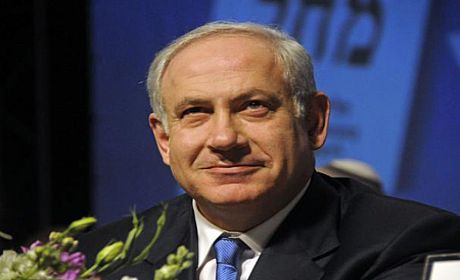Threats on Iran Could Lead Radicals to Victory

Considering Netanyahu's recent statements, which parties inside Israel intend to make the issue of Iran a key issue in the upcoming elections?
In general, radical factions which have security priorities at the top of their agendas have naturally included threats on Iran as an important part of their campaigns. This is because they believe that Israeli society can only be controlled on the basis of foreign threats and it is on this basis that they can prevent a collapse in the system, one which would be due to structural crises. Therefore, radical factions pay more attention to this issue, especially those that have a political approach rather than a religious one.
In your opinion, considering the atmosphere inside Israeli society, to what extent can Netanyahu make use of threats on Iran to garner votes?
The issue of threats on Iran lost its hype to a certain extent after the 8-day war in Gaza. This was because, following the defeat Israel suffered, the ineffectiveness of the Iron Dome in tracing any missile launched towards Israel became clear. To a certain extent, this issue prevented Israel from once again threatening Iran. I think one of the results of the 8-day war was that Israel was forced to ask itself one question: Israel was not able to provide its own security in facing a small power such as Gaza, which, in comparison with the 78 percent of Palestinian soil that Israel occupies, takes up only 1.5 percent of Palestine. How could it ever withstand the missile attacks of a powerful country such as Iran? This issue made Israel feel embarrassed to repeat its threats against Iran.
Therefore, this new threat made by Netanyahu against Iran is an act of shame. This new round of threats intends to create a psychological atmosphere where Israel tries to show that it is not only capable of confronting Iran, but it also seriously follows the issue of attacking Iran and putting Iran under threat.
In reality, this measure was taken in order to repair the security and psychological damage done inside Israel. But whether this will be able to influence the elections and lead to an election victory depends on whether they can transform the security issue into the main preoccupation of Israeli citizens and maintain it in this way. When Israeli citizens struggle with economic problems, the economy automatically becomes their main priority. In any case, Netanyahu and his radical allies are trying to establish the security issue as the top priority. Iran is one part of this issue and not the whole issue.
It appears that conditions are not favorable for Lieberman to be present in the elections and the chances of his absence are becoming stronger. How do you assess conditions for the radical faction inside Israel?
The reality is that the issue of Gaza and Israel's defeat in its struggle against the resistance in Gaza has naturally increased the importance of the issue of security in Israel. Despite the fact that the Netanyahu/Lieberman coalition has not been able to achieve any success which it could use in the elections, security preoccupations are intensifying. The radicals might be able to maintain their position by taking advantage of this issue. Meanwhile however, the radical movement's failure to provide security has put this faction's election chances in danger. This has created a sort of paradox in the present situation in Israel. What I mean is that on one hand security concerns have intensified and on the other hand, the radical faction's inability to provide security has become clearer. The issue of whether the radical faction can make up for the ground it lost in its defeat in the 8-day war, or whether it can use the security issue to gain more votes, depends on developments leading up to the elections. But polls show that, in comparison with the radical faction, the moderate faction is in better condition than before.
Bearing in mind that Netanyahu officially showed support for Obama's rival in the last election, meaning Romney, how would you assess Obama's view towards the upcoming Israeli elections and the radical faction in this country?
Considering the problems the US has in the Middle East, it is trying to move towards solving the Palestinian crisis. One of the main obstacles it faces is the presence of the radical faction at the top of the power structure in Israel. This includes not only the issue of the elections, but also the policies that govern the Israeli government, such as the issue of settlement-buildings. The US has shown strong opposition to the issue of settlement-buildings. This does not mean that the US no longer supports Israel. It does however mean that despite the fact that these two countries are allies, the US is not satisfied with how the ruling regime in Israel behaves. This issue could possibly have an effect on the Israeli elections.
How would this issue affect future US elections?
There hasn't been any specific mechanism for this type of effect. In the past, the US had been able to change the election result in the opposing party's favor by threatening to stop aid if the policies of the Israeli government were continued. But it is not yet clear which mechanism the US will utilize in order to put a government in power in Israel which would be in line with Obama’s policies in his second term. The choice of John Kerry for Secretary of State could be the start of such a process.

